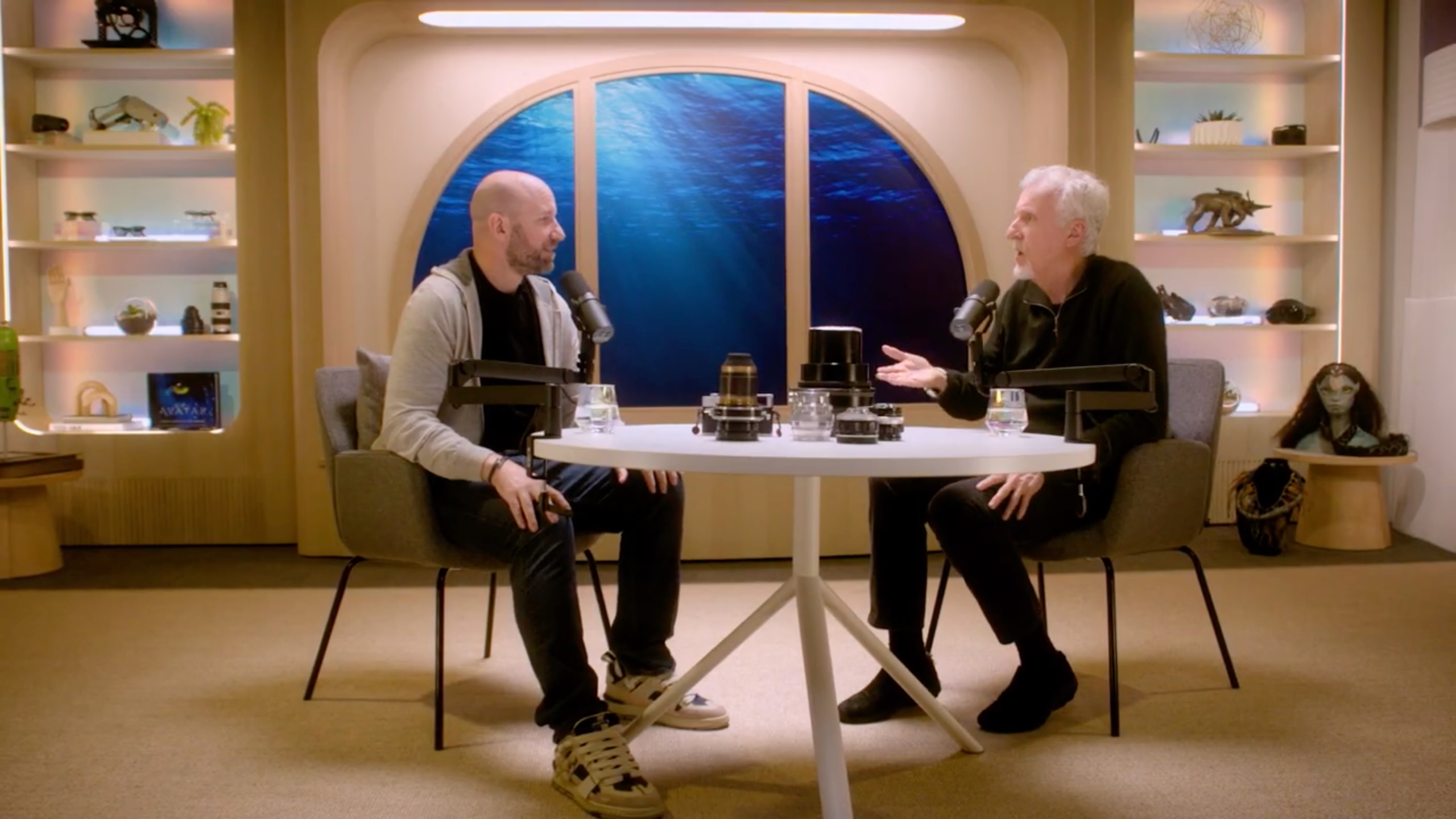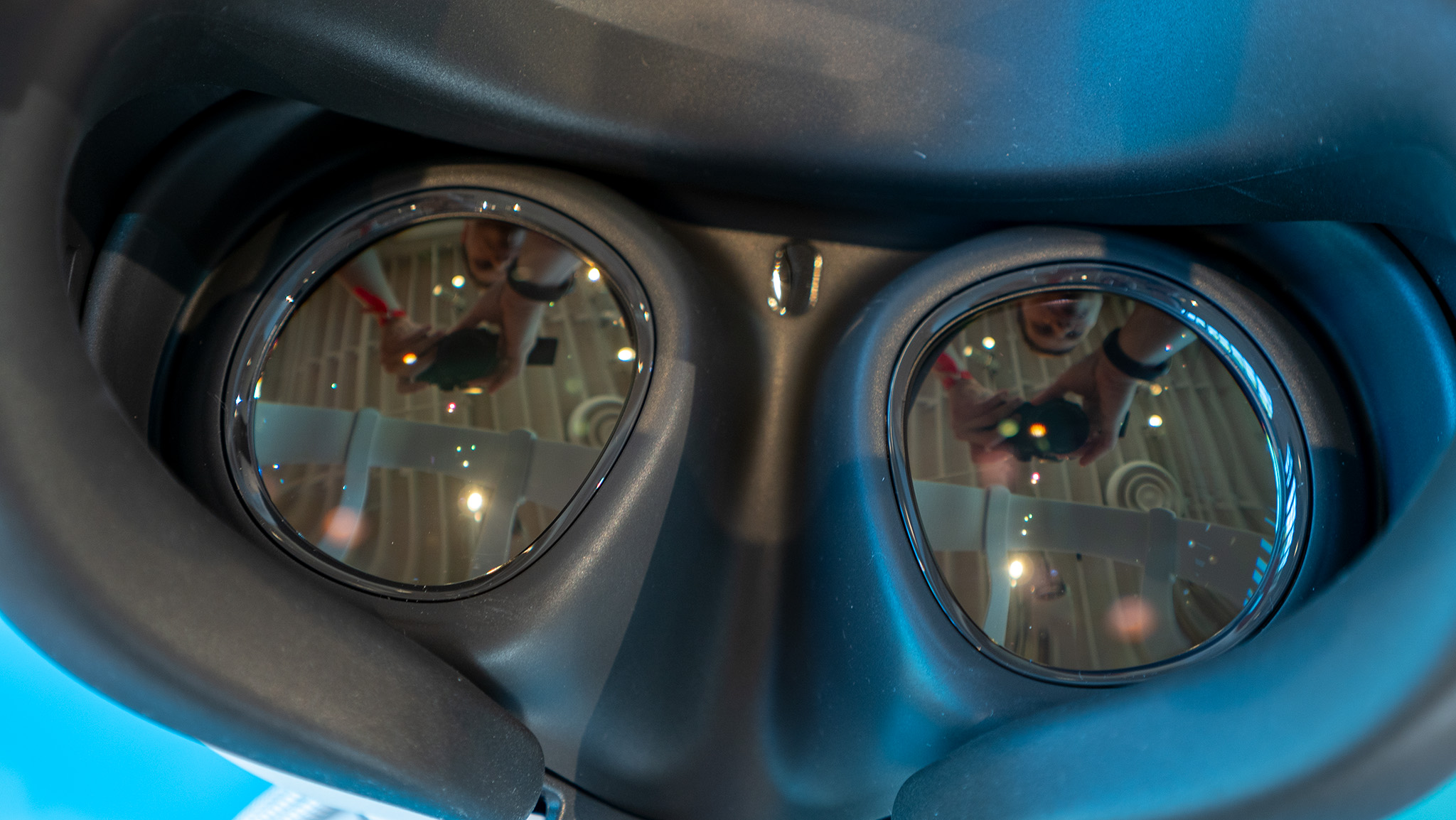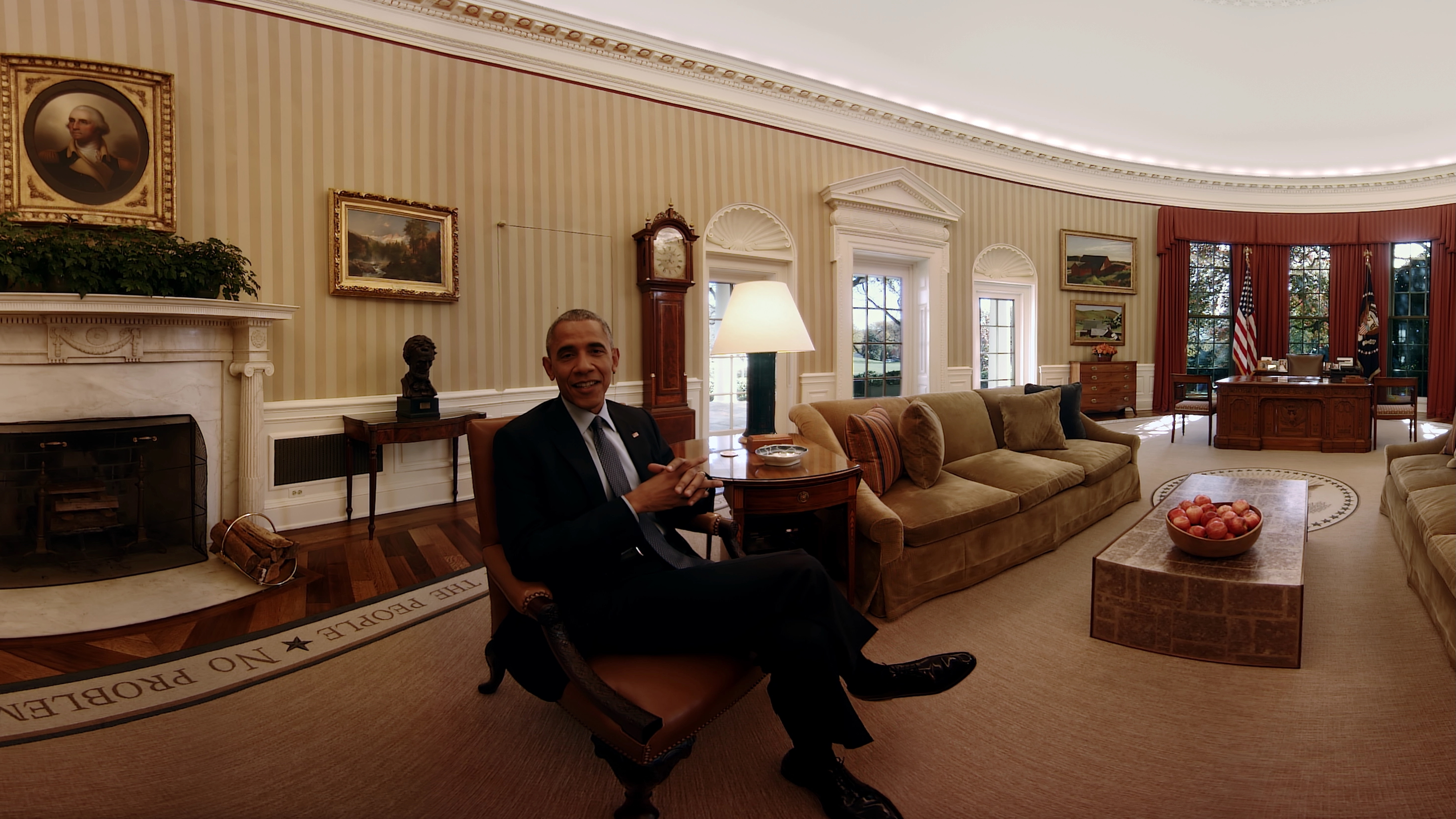
Legendary director James Cameron had a transformative, heavenly experience when he put on a Quest headset to watch VR films. And based on behind-the-scenes demos with unreleased Meta Quest headsets that he "can't talk about," he thinks things will get even more exciting in the "next few years."
The question is whether the Meta Quest 4 can truly become the next home for Hollywood directors, as Cameron hopes.
On the Boz to the Future podcast, Meta CTO Andrew Bosworth interviewed Cameron, whose company, Lightstorm Vision, partnered with Meta to make "world-class 3D entertainment experiences spanning live sports and concerts, feature films, and TV series featuring big-name IP on Meta Quest."
The episode ranges from the benefits of AI for VFX to a technical history of filmmaking, but Cameron also spoke at length about why VR is the definitive way to experience his films — and tried to talk about mysterious future Quests before Boz stopped him.
"Brightness is a big deal in theaters," Cameron explains, but he finds it "heartbreaking" that "99% of theaters" don't capture the calibrated color and dynamic range that he wants, so his films look "dim and dull."
But with a Quest 3 or any other XR headset, because they create a "discrete left-eye right-eye image," you immediately get a brighter, curated experience. The headset's subjective scale and FoV lets you "feel like you're in a theater," but without the downsides.
"A door opened for me," Cameron said about his first next-gen headset experience. "It was like the heavens parted, light shone down. There was an angel choir singing. It's like, 'ah'! This is how people can see the movie the way I created it to be seen!"

Cameron said he was looking at "some Avatar 3 material" on a headset that morning, and thought, "Wow, this looks great. This looks at least as good as Dolby Laser Vision Cinema, which is the ne plus ultra in an actual group theater."
At the end of the talk, Cameron discussed how big streamers like Netflix spent huge money on big filmmakers, then refused to greenlight their films to focus on uncreative procedural shows. So he hopes that the "HMD world" will attract filmmakers away from streaming platforms.
3D VR filmmaking could "blow open over the next few years with some of the new devices you've shared with me," Cameron told Bosworth. He asked if he could "talk about" these mystery Quest prototypes, but when Boz shut that down, Cameron simply said, "It's going to be very f***ing cool."
"We hope to build a bigger audience that reinvigorates people's willingness to invest" in VR filmmaking, Bosworth responded.
The filmmaker concluded the podcast by suggesting listeners "follow Meta for the next couple years," and that everything (aside from Avatar 3) that Cameron is doing is related to Meta because "I'm a 3D guy and [Meta is] the best channel."
Can Meta make VR filmmaking profitable? It'll be a tough battle

In the early days of the VR renaissance, the Tribeca Film Festival had a Virtual Arcade where Hollywood filmmakers streamed 3D films on Oculus Rifts. I attended every year, interviewing Hollywood producers about why VR filmmaking had so much untapped potential compared to traditional films.
I saw Hillary Clinton speak to Kathryn Bigelow about her VR anti-poaching documentary, spoke to Bourne director Doug Liman about his VR TV series, and spoke to Her Story creator Sam Barlow about merging games and films through the VR medium. It was an exciting time, when VR films and games felt equally important.
While VR filmmaking still exists, the interest (and funding) has faded. Big brands like Google and Oculus (later Meta) shut down their in-house studios, and most directors left VR behind as a fad while Quest primarily became a space for gaming and fitness.
There's a reason why Boz said they need to "reinvigorate people's willingness to invest" in VR films. They're still made today, but they're often niche, free tie-in experiences for other content — not a space for long-form content where you can earn your money back.

Today, you can watch 3D movies on Apple Vision Pro — like Cameron's Avatar — but there's a difference between an extra dimension on 2D films and films shot with 180º or 360º cameras that immerse you in a space and let you choose where to look.
I suspect Cameron's Meta work will also focus more on stereoscopic 3D content rather than spatial content, but I'm happy to be proven wrong. If you haven't watched true VR films before, believe me when I say that the most powerful ones will stay in your brain years later, as well as you might remember going somewhere in real life.
But will other Hollywood directors follow suit? It all depends on whether or not the Quest 4 really is so "f***ing cool" that it becomes more popular for streaming, not just gaming.
Can the Quest 4 really replace your TV? Cameron seems to think so!

At GDC 2025, Meta's head of game publishing Chris Pruett talked about how Meta's target audience has shifted from elite gamers to teens who love meme games like Gorilla Tag. But they now believe that "mainstream adults," or "30-something dads," will be the next "major player" on Quest headsets in 2026 and 2027.
To target this demographic, they want to make the next Quest headset a "really high-end TV" for non-gamers to use as a TV replacement. So I suspected at the time that the Quest 4 would get a major resolution boost, closer to what the Apple Vision Pro offers.
This is probably what Cameron wanted to talk about. Meta let him try a future headset prototype with good-enough resolution for high-res, 3D films, and Cameron wants to port his next 3D films a few inches from your eyes with the brightness and clarity that you don't always get in a theater.
And this explains why Meta wants to invest in this partnership now. Making films and TV shows takes time, especially 3D ones! If it wants to have content for the Quest 4 in a couple of years, it makes sense that they'd start now.
I don't know if Cameron will be able to convince any of his Hollywood peers to jump on the VR train. But his presence alone has me excited for what kind of immersive 3D films we'll see on Quest headsets in the future.







